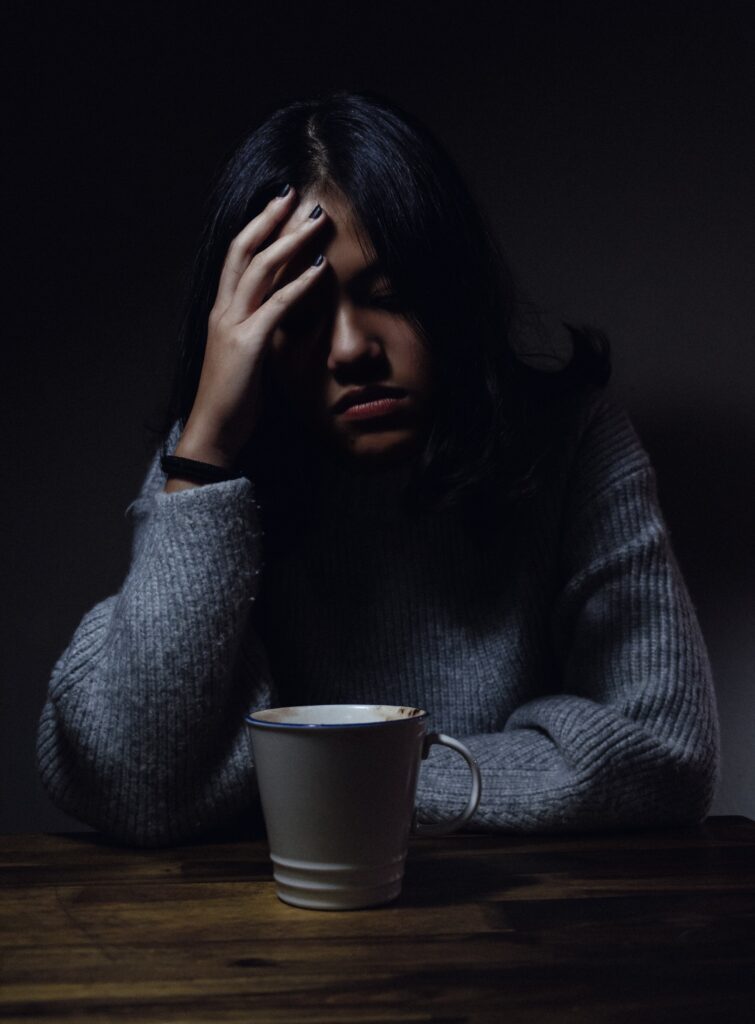Can Alcohol Be the Cause of Your Depression?
- Home
- Blog
- Uncategorized
- Can Alcohol Be the Cause of Your Depression?

By Deborah Brosseau
Questioning the alcohol-depression connection is a little like asking “Which came first – the chicken or the egg?” Does one drink because one is depressed, or is one depressed because they drink? The answer, at this point in the research, is both.
And that probably makes good sense to most of us. People have treated sadness with booze since the dawn of time. If you’re a person with depression, you look for anything to ease the pain. If you are misusing alcohol, it may cause you to behave or think in ways that lead to shame and guilt. These are two great challenges that together form a much larger one.
But can alcohol be the cause of your depression?
Before we explore the connection, let’s get an understanding of how depression and alcohol misuse are diagnosed.
Depression is different from situational sadness or grief. It is a disease that negatively affects how you think, feel, and behave. That, in turn, can impact your physical health and your relationships. Depression symptoms include feelings of sadness or worthlessness, loss of interest or energy, changes in your appetite and sleep, trouble concentrating, and thoughts of death or suicide. If any of these symptoms exist for more than two weeks, you may be experiencing depression. More than 6.7% of Americans have had at least one major depressive episode yearly.
Alcohol misuse looks at similar kinds of physical, mental, and social impacts. According to the CDC, about 90% of the people who drink excessively would not meet the criteria for alcohol dependency or alcohol use disorder (alcoholism). But their drinking behavior still has negative impacts on their lives. This kind of drinking includes drinking more than the CDC limits (1/day for women, 2/day for men), binge and heavy drinking, or any kind of drinking that results in harm to self, others, or lifestyle. And certainly, alcohol dependence is another possible diagnosis. Nearly 29% of Americans will experience alcohol use disorder.
Moreover, approximately one in eight people have co-occurring depression and alcoholism. Depression is the most common mood disorder in people with alcohol use disorder, with 30-40% of people reporting depressive episodes.
So both of these diagnoses are prevalent and can be related. Back to our question: does alcohol cause depression?
Because alcohol, chemically, is a depressant, it can harm the brain in ways that lead to depression. Excessive and long-term drinking can substantially alter brain chemistry. Messing with your neurotransmitters directly relates to developing mental illnesses. Other physical triggers include sleep disruptions, increased anxiety, medication interactions (which can even be dangerous), as well as negative effects on other health conditions.
Additionally, the real-life negative consequences from misusing alcohol – from losing an important relationship to earning a DUI – can trigger a major depression situation.
To summarize, studies indicate that having misusing alcohol can increase the risk of depression, and depression can increase the risk of alcohol use disorder. The most plausible causal connection between the two is that alcohol misuse increases the risk of depression rather than the other way around. Physical and chemical changes resulting from exposure to alcohol may trigger the depression.
Also to be noted: suffering from either – and especially both – of these conditions puts a person at a greatly increased risk for considering and completing suicide. Alcohol can simultaneously increase depression, increase impulsiveness, and impair judgement. Alcohol intoxication was indicated in 22% of deaths by suicide in the U.S. in 2016.
If you’re experiencing struggles with alcohol use, depression, and definitely if you’re challenged by both, an integrated alcohol treatment approach can be an effective way to recover and heal. After 3-4 weeks of sobriety, the symptoms of depression are have been found to reduce significantly. And a clearer head, the causes – be they emotional or chemical – are most easily found and treated.
References:
- AFMC, Alcohol Worsens Depression; Depression Worsens Alcohol Abuse
- American Psychiatric Association, What Is Depression?
- Healthline, Depression: Facts, Statistics, and You
- Centers for Disease Control and Prevention, Alcohol and Public Health
- Centers for Disease Control and Prevention, Alcohol & Substance Misuse
- American Psychiatric Association, APA Release New Practice Guideline on Treatment of Alcohol Use Disorder
- NCBI, Treatment of the Depressed Alcoholic Patient
- ARCR, Alcohol Use Disorder and Depressive Disorders
- NIH, Alcoholism and Psychiatric Disorders
- WedMD, Alcohol and Depression https://www.webmd.com/depression/guide/alcohol-and-depresssion#1-3
- NCBI, Alcohol and depression
- SAMHSA, Substance Use and Suicide
- PsychCentral, Alcohol & Depression
GET STARTED TODAY!
424-302-2598
CAST Centers is Proud to Celebrate Over 18 Years
Helping Individuals & Families
Programs
What We Treat
-
Substance Abuse
Insurance
Alumni
Contact Cast Centers
CAST Centers
630 N Doheny Drive
West Hollywood, CA 90069
424-302-2598
Email
Administration
632 N Doheny Drive
West Hollywood, CA 90069
424-302-2598
Email
Service Area
CAST Centers is licensed by the California State Department of Health Care Services. DHCS Certification for Intensive Outpatient and Outpatient Services.
License Number: 190936BP.
Expiration Date: 8/31/2025.
Copyright © 2022 CAST Centers. All rights reserved.
Privacy Policy | HIPAA | Terms of Use | Site Map


